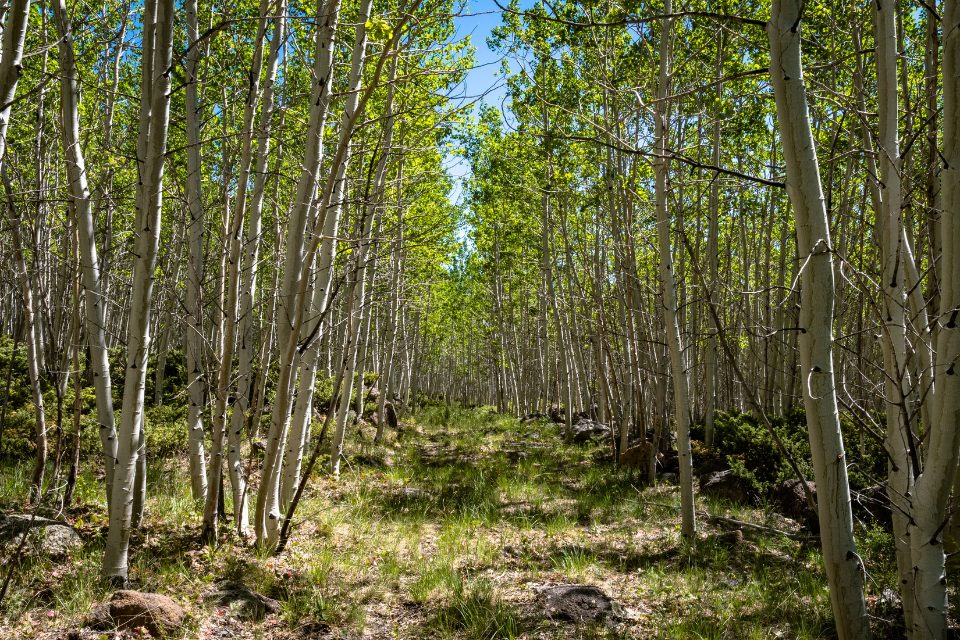Rev. John Kasper urges us to remember that our unity in faith and grace holds us together as Christians and shapes our message to the world.
JOHN KASPER
Superintendent, Central Bay District
“I am praying . . . for all who will ever believe in me through their message. I pray that they will all be one, just as you and I are one—as you are in me, Father, and I am in you. And may they be in us so that the world will believe you sent me” (John 17:20-2, NLT).
In the Fremont River Ranger District of the Fishlake National Forest in south-central Utah, there is a clonal colony of quaking aspen called Pando. Pando (Latin for “I spread”) looks like a forest but is, in fact, a single organism. Pando occupies 108 acres and is estimated to weigh collectively 6,000 tons, making it the heaviest known organism. Pando, though only male, reproduces through a process called suckering. From its massive, interconnected root system, estimated to be several thousand years old, Pando sends up erect stems that, from all above-ground appearances, look like over forty-seven thousand individual trees. This collection of multiple stems forms one genetic individual nicknamed the Trembling Giant.
There are nearly as many denominations in Christianity as trees growing from Pando. Each looks different—beautiful and broken in their own way—yet all share the same DNA. As Paul wrote, “There is one body and one Spirit, just as you were called to one hope when you were called; one Lord, one faith, one baptism; one God and Father of all, who is over all and through all and in all” (Ephesians 4:4-6, NIV). So, it is understandable that we lament the seeming fracturing of our denominations. Christianity is an organism of faith and grace that has spanned and continues to span thousands of cultures for over two thousand years.
Yet, as with each tree of Pando, we cannot expect Christians to be identical. We are necessarily different—differently abled and gifted—so together, we become a whole organism. Paul, in 1 Corinthians 12, used the metaphor of a body and concluded, “Now you are the body of Christ, and each one of you is a part of it” (v. 27). Our differences can, and should, be cause for celebration when we believe that the same Spirit works through all gifts and services in all Christians (vv. 4-6). The same Spirit sings through us with a pipe organ or electric guitar, a Gregorian chant or gospel choir—though I am grateful they are not at the same time—and we each individually hear the Spirit and sing the song at a different pitch.
In his book Manifold Witness: The Plurality of Truth, John R. Franke wrote, “The many parts of the church are called to participate together in a unity characterized by interdependent particularity. Each is a part, and only a part, of the embodied witness to the truth of the gospel made known in Jesus Christ. Each plays its part by bearing faithful witness to Jesus Christ in all the fullness of its cultural, social, and historical particularity in order that the world may know that the God of love has been revealed in Jesus Christ and that through him God is reconciling the world and announcing good news to all people.”
Our unity, our interconnected root system of the Christian organism of faith and grace, does not require uniformity. The expectation of uniformity is perhaps the biggest downfall of our shared faith over the centuries and, dare I say, that which makes me most distraught in The United Methodist Church and the disaffiliation turmoil that we are currently experiencing. What holds us together must take precedence over what divides us.
I am the eldest of six boys. As you can imagine, my mother was ecstatic when I announced my engagement to my now wife of 40-plus years. And while my brothers and I don’t think so, the people in my hometown tell us they know we are Kaspers because we all look alike. We do have many similarities, but we also have many differences. We do not all think alike. We do not all act alike. But we are of the same root. What affects one does affect all. We will always be there for one another.
Can this be said of the Church as well? It should be. Can this be said of Methodism, despite the current disaffiliation and discord? It should be. Yes, our differences matter. But will the fences that have risen between us not affect us all? And, more importantly, will the fences that have risen between us also affect those not of the Church? More than ever before, the people of this world need to believe in Jesus because of the message that we bring.
I pray that we remember that we are of one root and share the same DNA. I pray that we will all be one, just as the Father and Jesus are one, so that the world will believe God sent Jesus. I pray that we will be both a forest and a single tree—one big Trembling Giant, stirred by one Wind of the Spirit!
“How good and pleasant it is when God’s people live together in unity! . . . For there the Lord bestows his blessing, even life forevermore” (Psalm 133:1, 3, NIV).
Last Updated on November 9, 2023

